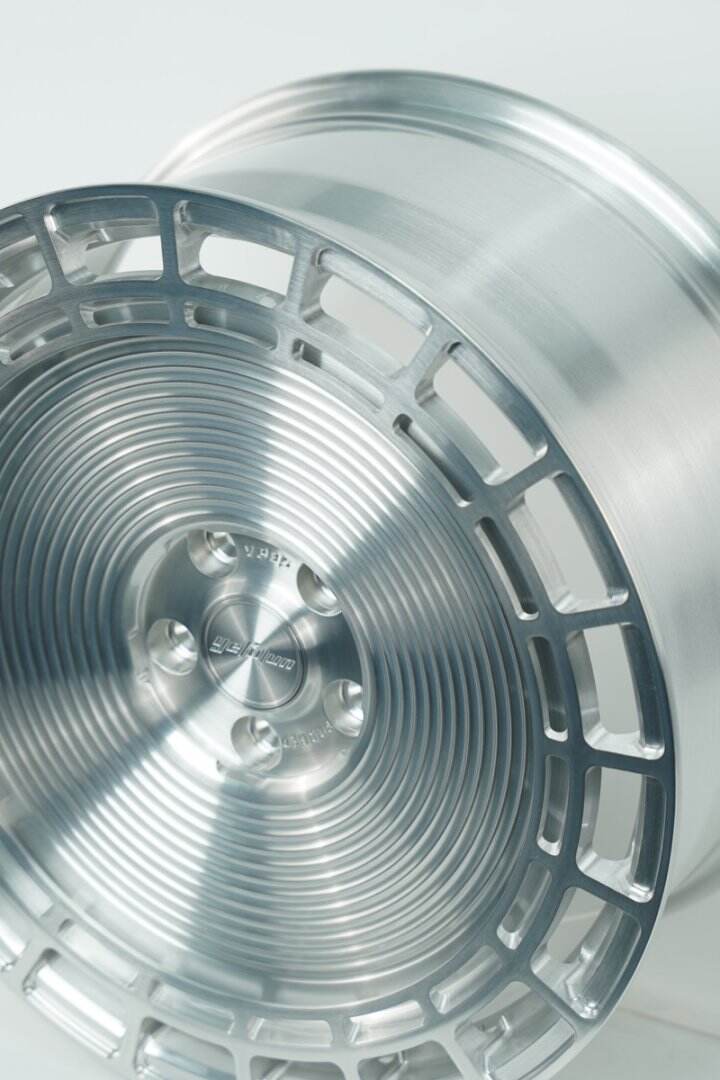OEM রিম এবং অ্যাফটারমার্কেট চাকা কি?
ওইএম রিমস সংজ্ঞায়িত করুন: ফ্যাক্টরি-বিল্ট প্রেসিশন
মূল সরঞ্জাম প্রস্তুতকারক (ওইএম) এর রিমগুলি নির্দিষ্ট গাড়ির জন্য তৈরি করা হয় যাতে সেগুলি ঠিকমতো সেই মডেলগুলিতে লাগানো যায়। গাড়ি কোম্পানিগুলি এই চাকাগুলি তৈরি করে কঠোর নিয়ম মেনে যাতে স্বাভাবিক চালনা পরিস্থিতিতে সেগুলি দীর্ঘস্থায়ী এবং নিরাপদ থাকে। বেশিরভাগ ওইএম রিমে ভালো উপকরণ ব্যবহার করা হয় এবং তাই নতুন করে কেনার সময় অনেকগুলির সাথে কোনো না কোনো ওয়ারেন্টি থাকে। কখনও কখনও এগুলিকে ফ্যাক্টরি ডাইরেক্ট হুইল বা মূল স্পেসিফিকেশন রিম বলা হয়, কিন্তু যে নামই ব্যবহার করা হোক না কেন, অধিকাংশ চালক এদের উপর আস্থা রাখেন কারণ তাঁরা জানেন যে এই পণ্যগুলি তৈরির সময় কী কী জিনিস ব্যবহার করা হয়েছে। যাঁদের গাড়ির রাস্তায় নিরাপদ পারফরম্যান্সের প্রতি উদ্বিগ্নতা বেশি এবং দেখতে স্টাইলিশ লাগা তেমন গুরুত্বপূর্ণ নয়, তাঁদের ক্ষেত্রে ওইএম অপশনগুলি সাধারণত শীর্ষ পছন্দ হয়ে থাকে কারণ এগুলি সেই নির্দিষ্ট যানটির জন্যই প্রারম্ভ থেকে তৈরি করা হয়েছে।
অ্যাফটারমার্কেট চাকার জ্ঞান: কัส্টমাইজেশনের বিকল্প
গাড়ি প্রেমিকদের পছন্দ অ্যাফটারমার্কেট হুইলগুলি কারণ এগুলি দিয়ে লোকে স্টাইল, রঙ এবং ফিনিশ থেকে শুরু করে প্রায় সবকিছুই কাস্টমাইজ করতে পারে, যার ফলে রাস্তায় গাড়িগুলি অন্যদের থেকে আলাদা হয়ে ওঠে। যদিও এই হুইলগুলি তৈরি হয় তৃতীয় পক্ষের প্রস্তুতকারকদের দ্বারা, তাই মাঝে মাঝে এগুলি ফ্যাক্টরি স্পেসিফিকেশনের সঙ্গে সঠিকভাবে মেলে না, যার জন্য গাড়ির মোট পারফরম্যান্স প্রভাবিত হতে পারে। এই বাজারটিকে আকর্ষণীয় করে তোলে বর্তমানে পাওয়া বিভিন্ন উপকরণ এবং ডিজাইনগুলি। কিছু হুইল টার্নের সময় ভালো গ্রিপের জন্য তৈরি হয়, আবার কিছু বেশি দৃষ্টিনন্দন হওয়ার ওপর জোর দেয় কিন্তু তবুও ভালো কার্যকারিতা প্রদর্শন করে। বেশিরভাগ চালক এগুলি পছন্দ করেন কারণ কেউই চায় না যে তারা রাস্তায় অন্যদের মতো একই রকম গাড়ি নিয়ে ঘুরছেন।
OEM এবং অ্যাফটারমার্কেট চাকা মধ্যে মৌলিক পার্থক্য
তৈরির মানদণ্ড এবং গুণবত্তা নিয়ন্ত্রণ
মূল সরঞ্জাম প্রস্তুতকারক (ওইএম) হুইলগুলি সাধারণত বেশ উচ্চ মানের উৎপাদন মান সহ আসে কারণ তারা কঠোর আইএসও নির্দেশিকা অনুসরণ করে যা মান এবং নিরাপত্তা বৈশিষ্ট্যগুলি নিশ্চিত করতে সাহায্য করে। গাড়ির যন্ত্রাংশ সম্পর্কে অবগত বেশিরভাগ লোকই বলবে যে ওইএম হুইলগুলি নির্দিষ্ট যানবাহনের জন্য তৈরি করা হয়, তাই স্থাপন করার সময় সেগুলি ভালো কাজ করে এবং সঠিকভাবে ফিট হয়। অপরদিকে, অ্যাফটারমার্কেট হুইলগুলির মান বেশ পরিবর্তিত হয়। কিছু কোম্পানি এই তৃতীয় পক্ষের হুইলগুলি তৈরি করার সময় ভালো মান বজায় রাখে, কিন্তু অনেক কোম্পানি উপাদান বা নির্মাণ পদ্ধতিতে কাটছাঁট করে খরচ কমানোর চেষ্টা করে। এবং এই মানের পার্থক্যের কারণে অনেক অ্যাফটারমার্কেট হুইল ওইএম হুইলের তুলনায় দীর্ঘস্থায়ী হয় না এবং নিরাপদভাবেও কাজ করে না।
ম difíc অপশন: স্টিল বনাম ফোর্জড অ্যালুমিনিয়াম
বেশিরভাগ কারখানা-তৈরি রিম ইস্পাত বা অ্যালুমিনিয়াম থেকে তৈরি হয়, যা অনেকের কাছে তাদের ওজন, কতটা টেকসই হওয়া উচিত এবং কতটা গ্রাহক ক্রয় করতে পারে সেগুলির মধ্যে সঠিক ভারসাম্য রক্ষা করে। সময়ের সাথে সাথে স্টিলের চাকাগুলি বেশ ভালো অবস্থায় থাকে এবং খারাপ রাস্তায় গাড়ি চালালে সহজে বেঁকে যায় না, যেখানে অ্যালুমিনিয়াম রাস্তায় চলাচলের জন্য সাধারণ ব্যবহারে টেকসই নষ্ট না করেই ওজনে হালকা হওয়ায় ভালো ওজন কমায়। তবে অ্যাফটারমার্কেট চাকার গল্পটা আলাদা। বর্তমানে অনেক প্রস্তুতকারক ঢালাই অ্যালুমিনিয়ামের পরিবর্তে আরও ভালো মানের ফোর্জড অ্যালুমিনিয়ামের চাকা তৈরি করছে। ফোর্জড অ্যালুমিনিয়াম আসলে ঢালাই অ্যালুমিনিয়ামের চেয়ে হালকা এবং চাপের মধ্যে ভালো অবস্থায় থাকে, যা কার প্রেমিকদের মধ্যে কোণাগুলি তীক্ষ্ণভাবে নিয়ন্ত্রণ করতে এবং দ্রুত গতি বাড়াতে জনপ্রিয় করে তোলে। রেসিং দল এবং হট রডাররা বিশেষভাবে এটি পছন্দ করেন কারণ গাড়ির স্টক চাকাগুলি স্বাভাবিক সীমা ছাড়িয়ে গাড়িকে ঠেলে দিলে তা আর কাজে লাগে না।
অফসেট রিম এবং ফিটমেন্ট সুবিধা
অফসেট রিমগুলি যেভাবে ডিজাইন করা হয় তাতে গাড়িতে কীভাবে সেগুলি ফিট হয় তার পার্থক্য তৈরি করে। মূল প্রস্তুতকারক (ওইএম) রিমগুলি গাড়ি কোম্পানি উৎপাদনের সময় যে পরিমাপ নির্দিষ্ট করেছে তার সঠিক অফসেট পরিমাপের সাথে মেলে তৈরি করা হয়। এটি নিশ্চিত করে যে সবকিছু সঠিকভাবে সারিবদ্ধ হয় যাতে গাড়িটি ঠিকমতো নিয়ন্ত্রণ করা যায় এবং চালানোর সময় স্থিতিশীল থাকে। প্রস্তুতকারকরা এই রিমগুলি তৈরি করার সময় বিস্তারিত বিষয়গুলির প্রতি নজর দেন কারণ ক্ষুদ্র ক্ষুদ্র অসমতা পর্যন্ত গাড়িটির রাস্তায় নিরাপদ বোধের উপর প্রভাব ফেলতে পারে। তবে অ্যাফটারমার্কেট হুইলগুলি একটি ভিন্ন গল্প বলে। এদের মধ্যে প্রায়শই ভিন্ন অফসেট সংখ্যা তৈরি করা হয়, কখনও কখনও কোনও নির্দিষ্ট মার্কা এবং মডেলের জন্য যা সবচেয়ে ভালো কাজ করে তার থেকে বহুদূরে সরে যায়। এটিকে ভুল করা মানে হল চাকাগুলি গাড়ির অন্যান্য অংশের সাথে ঘর্ষণ তৈরি করতে পারে অথবা খুব বেশি বাইরের দিকে বসতে পারে, যা শুধুমাত্র অদ্ভুত দেখার চেয়ে বেশি সমস্যা তৈরি করে। ভুল অফসেট আসলে হ্যান্ডেলিং বৈশিষ্ট্যগুলির উপর প্রভাব ফেলতে পারে এবং যদি কেউ সঠিকভাবে স্পেসিফিকেশন মিলাতে অসাবধান হয় তবে বিপজ্জনক পরিস্থিতি তৈরি করতে পারে।
OEM রিমের সুবিধা এবং অসুবিধা
সুবিধা: গ্যারান্টি ফিটমেন্ট এবং পুনঃবিক্রয়ের মূল্য
ওইএম রিমগুলি যে কোনও যানবাহনের সাথে সঠিকভাবে মানানসই করে তৈরি করা হয়, যার মানে হল স্থাপন করা সাধারণত নির্বিঘ্নে হয়ে থাকে। কারখানায় তৈরি হওয়া সঠিক মিলের কারণে চালনার সময় নিরাপত্তা বজায় রাখা সম্ভব হয় কারণ সবকিছুই মূল স্পেসিফিকেশনের মধ্যে থাকে। এছাড়াও এখানে আরও একটি উপকারিতা রয়েছে। ওইএম অংশগুলি যখন অক্ষত থাকে তখন গাড়িগুলি তাদের মূল্য ভালো অবস্থায় ধরে রাখে। অধিকাংশ ক্রেতা এমন গাড়ির খোঁজে থাকেন যেগুলি খুব বেশি নষ্ট করা হয়নি, তাই আসল ওইএম জিনিসপত্র দেখে ক্রেতারা কেনার ব্যাপারে আত্মবিশ্বাসী বোধ করেন। এই ধরনের আত্মবিশ্বাসের ফলে মূল উপাদানগুলি ধরে রাখা যানবাহনের জন্য অতিরিক্ত অর্থ খরচ করতে মানুষ প্রস্তুত হয়ে থাকেন। তাই বলা যায়, ওইএম চাকার উপর অর্থ বিনিয়োগ করা পরবর্তীতে বিক্রির সময় অর্থ বাঁচাতে পারে।
অসুবিধা: উচ্চতর খরচ এবং সীমিত ডিজাইন
OEM রিমসের দিকে ঝুঁকলে একটি বড় সমস্যা হল যে এগুলি পরবর্তী চাকার তুলনায় অনেক বেশি খরচ হয়। চাকা আপগ্রেড বা প্রতিস্থাপনের ক্ষেত্রে যাঁদের বাজেট নিয়ে ভাবতে হয়, এই অতিরিক্ত খরচ তাঁদের পরিকল্পনায় বাধা হয়ে দাঁড়াতে পারে। আরেকটি সমস্যা হল ডিজাইনের বৈচিত্র্য। OEM প্রস্তুতকারকরা সাধারণত সেই মৌলিক শৈলীগুলি মেনে চলেন যা ঠিক মাপের লাইন থেকে তৈরি হয়েছিল। যেসব গাড়ির মালিক কিছু আলাদা চান, যেমন আরও চকচকে বা আধুনিক কিছু যা মূলত ইনস্টল করা ছিল না, তাঁদের জন্য অফিসিয়াল চ্যানেলগুলির মাধ্যমে প্রাপ্ত পুরনো চেহারা ছাড়া বিশেষ কিছু থাকে না।
অফটারমার্কেট চাকার সুবিধা ও অসুবিধা
সুবিধা: ব্যাপক শৈলী এবং পারফরম্যান্স আপগ্রেড
স্টাইল নির্বাচনের ক্ষেত্রে অ্যাফটারমার্কেট হুইলগুলি প্রকৃতপক্ষে কিছু বিশেষ সংযোজন করে থাকে। গাড়ি প্রেমিকদের প্রচুর বিভিন্ন চেহারা এবং ফিনিশ থেকে নির্বাচন করার সুযোগ হয় যাতে তাদের গাড়ি রাস্তায় অন্যদের থেকে আলাদা হয়ে ওঠে। কাস্টমাইজেশনের জন্য আগ্রহীদের কাছে নিয়মিত কারখানার রিমগুলি প্রায়শই যথেষ্ট মনে হয় না। অ্যাফটারমার্কেট বিকল্পগুলি মানুষকে প্রাচীন ক্লাসিক থেকে শুরু করে কার শোগুলিতে নজর কাড়া আধুনিক ডিজাইন পর্যন্ত সবকিছুতেই সৃজনশীল হওয়ার সুযোগ দেয়। আকর্ষণীয় বিষয় হল যে এই হুইলগুলি প্রকৃতপক্ষে পারফরম্যান্স মেট্রিক্স বাড়াতেও সক্ষম। বর্তমানে অনেক প্রস্তুতকারক হুইল তৈরি করছেন হালকা উপকরণ যেমন অ্যালুমিনিয়াম মিশ্র ধাতু দিয়ে। এটি গাড়ির নিয়ন্ত্রণযোগ্যতা বাড়ায় এবং স্টক সংস্করণগুলির তুলনায় দ্রুত উচ্চতর গতি অর্জন করতে সাহায্য করে। ট্র্যাক ডে যোদ্ধা বা যে কোনও ব্যক্তি যিনি তাদের মেশিনের সর্বোচ্চ ক্ষমতা বের করতে আগ্রহী, তাদের জন্য উন্নত মানের অ্যাফটারমার্কেট হুইলে সুইচ করা প্রায় অবশ্যম্ভাবী।
অসুবিধা: গুণবত্তা পরিবর্তনশীলতা এবং ফিটমেন্টের ঝুঁকি
অফটারমার্কেট হুইলের মান প্রস্তুতকারকদের মধ্যে বেশ পার্থক্য হয়ে থাকে। কিছু কোম্পানি সত্যিই শক্তিশালী, দীর্ঘস্থায়ী পণ্য তৈরি করে যেখানে অন্যান্য কোম্পানি সস্তা উপকরণ বা খারাপ নির্মাণ পদ্ধতি ব্যবহার করে অর্থ সাশ্রয়ের চেষ্টা করে। এটি পরবর্তীতে বিভিন্ন সমস্যার কারণ হতে পারে যেমন বেঁকে যাওয়া রিম বা এমনকি হুইল ব্যর্থতা। কেনাকাটা করার সময়, পর্যালোচনা করে দেখুন এবং সেইসব জনপ্রিয় ব্র্যান্ডগুলো বেছে নিন যাদের প্রমাণিত রেকর্ড রয়েছে। এই হুইলগুলোর জন্য ফিটমেন্ট আরেকটি বড় সমস্যা। অনেক মানুষ শেষ পর্যন্ত এমন হুইল কিনে বসেন যা আসলে তাদের গাড়ির স্পেসিফিকেশনের সাথে সঠিকভাবে কাজ করে না। সঠিকভাবে সাজানো না থাকা হুইলগুলো গাড়ি চালানোর বৈশিষ্ট্যগুলোকে প্রভাবিত করতে পারে এবং প্রদর্শন কমিয়ে দিতে পারে। আরও খারাপ হলে, অযথাযথ ফিটমেন্ট মাঝেমধ্যে হাইওয়ে গতিতে গাড়ি চালানোর সময় গুরুতর নিরাপত্তা ঝুঁকি তৈরি করতে পারে। রাস্তায় নিরাপদে থাকার জন্য কোনও কিছু কেনার আগে সর্বদা মাত্রা এবং বোল্ট প্যাটার্নগুলো দ্বিতীয়বার পরীক্ষা করে নিন।
আপনার গাড়ির জন্য সঠিক বাছাই করুন
ড্রাইভিং প্রয়োজন মূল্যায়ন: দৈনিক ব্যবহার বনাম পারফরম্যান্স
ওইএম এবং অ্যাফটারমার্কেট হুইলের মধ্যে সিদ্ধান্তটি আসলে কোনও ব্যক্তি কতবার গাড়ি চালায় তার উপর নির্ভর করে। যারা প্রতিদিন গাড়ি চালান তাদের কাছে সাধারণত আরাম এবং কতক্ষণ স্থায়ী হবে তা বেশি গুরুত্বপূর্ণ হয়, তাই ওইএম রিমগুলি তাদের জন্য ভালো কাজ করে। অন্যদিকে, পারফরম্যান্স উন্মুখ যানবাহন থাকা চালকদের প্রায়ই হালকা ওজনের অ্যাফটারমার্কেট হুইল বেছে নেওয়া হয় কারণ এগুলি গতি বাড়াতে এবং গাড়িটিকে আরও প্রতিক্রিয়াশীল করে তুলতে পারে। প্রকৃত ব্যবহারের ধরন পরিষ্কার হলে বোঝা যায় যে কোনও পরিস্থিতিতে ওইএম বা অ্যাফটারমার্কেট বেশি যুক্তিযুক্ত।
বাজেটের বিবেচনা: আগের খরচ বনাম দীর্ঘমেয়াদি মূল্য
যেকোনো গাড়ির জন্য চাকা বাছাই করার সময় দাম অনেক গুরুত্বপূর্ণ। মূল প্রস্তুতকারক (ওইএম) চাকা প্রথম দৃষ্টিতে বেশি খরচ হয়, কিন্তু দীর্ঘমেয়াদে তাদের মূল্য বজায় রাখে এবং সাধারণত গাড়িটি বিক্রি করার সময় এটি গাড়ির মূল্য বাড়ায়। অন্যদিকে, অ্যাফটারমার্কেট অপশনগুলি প্রথমে সস্তা মনে হয়, কিন্তু অনেক ক্রেতাকেই পরে অতিরিক্ত খরচ করতে হয় কারণ তাদের স্থায়িত্ব বা সঠিকভাবে ফিটিং না হওয়ার সমস্যা থাকে। কিছু ক্ষেত্রে সাধারণ চালনার শর্তাবলীর মধ্যেই বক্রতা বা ফাটলের কারণে এক বা দুই বছরের মধ্যে তাদের প্রতিস্থাপন করা প্রয়োজন হয়েছে। এসব দিকগুলি বিবেচনা করা অধিক অর্থ বিনিয়োগ করা হলে ভবিষ্যতে অর্থনৈতিকভাবে এটি কতটা যৌক্তিক হবে তা বুঝতে সাহায্য করে।




